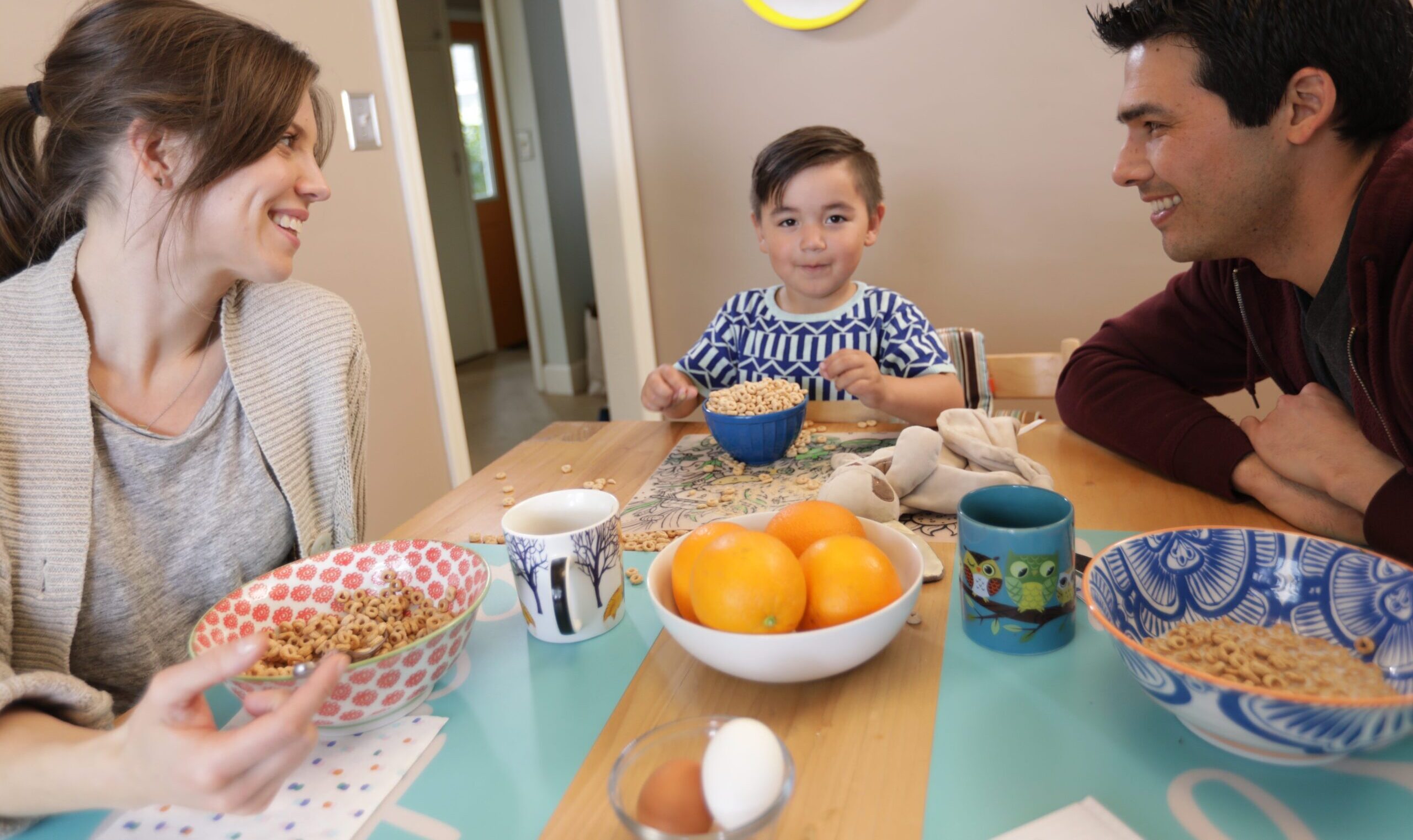
Routines and rituals have a real impact on your child’s brain.
When your child experiences consistent and predictable repetition, the pattern solidifies circuits in her brain that associate your action with a particular outcome. As she comes to realize that these outcomes are consistent and reliable (for example, you leave for work, say goodbye, take the Heart, and then return), her brain becomes wired to anticipate this outcome. Now, suppose you have to leave, but this time you’re going out to dinner with friends. If you repeat the routine and ritual, even though it’s a different time of day, your child will expect the same outcome. This will make her feel more secure, knowing that you will come home. Thanks to this sense of security, she may not make as much of a fuss.
In addition to the amazing brain-building benefits of routines and rituals, the consistency and predictability will give you and your child a sense of calm and stability that far outlasts the years of early childhood. Routines and rituals become inner narratives that help your child learn how to “talk” to herself. The language that you use with your child during routines and rituals becomes the model for your child’s ability to self-soothe. Your child will also develop the capacity to adapt and manage big and small transitions—a key skill that stays with her well into adulthood. Lastly, an added bonus of routines and rituals is that they reduce power struggles (the origin of tantrums!) between you and your child.
| Cookie | Duration | Description |
|---|---|---|
| __stripe_mid | 1 year | Stripe sets this cookie cookie to process payments. |
| __stripe_sid | 30 minutes | Stripe sets this cookie cookie to process payments. |
| cookielawinfo-checkbox-advertisement | 1 year | Set by the GDPR Cookie Consent plugin, this cookie is used to record the user consent for the cookies in the "Advertisement" category . |
| cookielawinfo-checkbox-analytics | 11 months | This cookie is set by GDPR Cookie Consent plugin. The cookie is used to store the user consent for the cookies in the category "Analytics". |
| cookielawinfo-checkbox-functional | 11 months | The cookie is set by GDPR cookie consent to record the user consent for the cookies in the category "Functional". |
| cookielawinfo-checkbox-necessary | 11 months | This cookie is set by GDPR Cookie Consent plugin. The cookies is used to store the user consent for the cookies in the category "Necessary". |
| cookielawinfo-checkbox-others | 11 months | This cookie is set by GDPR Cookie Consent plugin. The cookie is used to store the user consent for the cookies in the category "Other. |
| cookielawinfo-checkbox-performance | 11 months | This cookie is set by GDPR Cookie Consent plugin. The cookie is used to store the user consent for the cookies in the category "Performance". |
| CookieLawInfoConsent | 1 year | Records the default button state of the corresponding category & the status of CCPA. It works only in coordination with the primary cookie. |
| elementor | never | This cookie is used by the website's WordPress theme. It allows the website owner to implement or change the website's content in real-time. |
| viewed_cookie_policy | 11 months | The cookie is set by the GDPR Cookie Consent plugin and is used to store whether or not user has consented to the use of cookies. It does not store any personal data. |
| Cookie | Duration | Description |
|---|---|---|
| mailchimp_landing_site | 1 month | The cookie is set by MailChimp to record which page the user first visited. |
| Cookie | Duration | Description |
|---|---|---|
| _ga | 2 years | The _ga cookie, installed by Google Analytics, calculates visitor, session and campaign data and also keeps track of site usage for the site's analytics report. The cookie stores information anonymously and assigns a randomly generated number to recognize unique visitors. |
| _gat_gtag_UA_46801669_2 | 1 minute | Set by Google to distinguish users. |
| _gid | 1 day | Installed by Google Analytics, _gid cookie stores information on how visitors use a website, while also creating an analytics report of the website's performance. Some of the data that are collected include the number of visitors, their source, and the pages they visit anonymously. |
| tk_lr | 1 year | The tk_lr is a referral cookie set by the JetPack plugin on sites using WooCommerce, which analyzes referrer behaviour for Jetpack. |
| tk_or | 5 years | The tk_or is a referral cookie set by the JetPack plugin on sites using WooCommerce, which analyzes referrer behaviour for Jetpack. |
| tk_r3d | 3 days | JetPack installs this cookie to collect internal metrics for user activity and in turn improve user experience. |
| tk_tc | session | JetPack sets this cookie to record details on how user's use the website. |
| Cookie | Duration | Description |
|---|---|---|
| cookies.js | session | No description available. |
| m | 2 years | No description available. |
This content is exclusive to CuddleBright® customers.
Experience CuddleBright® today!
Already a customer? Login to view.